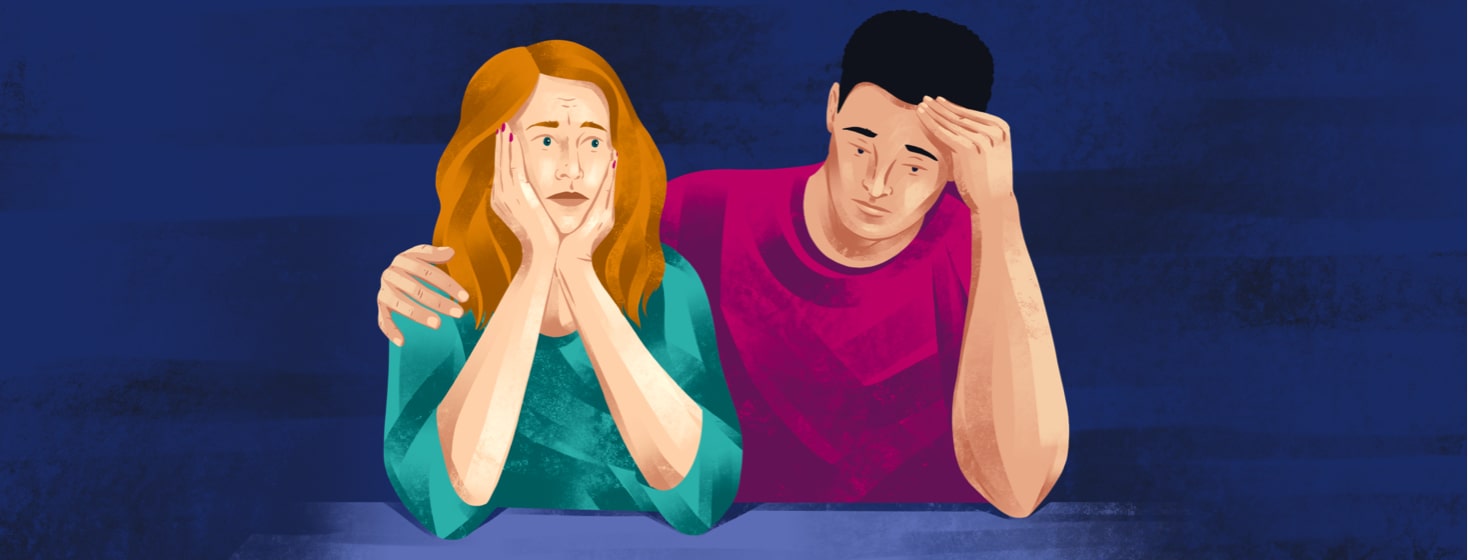Coping With Your Child’s SMA Diagnosis
A child’s diagnosis of spinal muscular atrophy (SMA) can be a life-changing event for parents. Parents say they feel a range of emotions while waiting for a diagnosis and after getting this news. Shock, numbness, denial, helplessness, and sadness are all common.
It can be overwhelming to figure out what to do after a diagnosis. It is also normal to feel anxiety and fear about future challenges. Talk to your doctor or a mental health professional about ways to cope with your child’s SMA diagnosis.
How can I cope with the stress of diagnosis delays?
A stressful part of diagnosis is the delay after you first notice symptoms. Symptoms of SMA are similar to those of other neuromuscular disorders. It may take time for doctors to rule out other conditions and finally diagnose SMA. The average time between noticing symptoms and receiving a diagnosis is:1,2
- 2 months for Type 1 SMA
- 5 months for Type 2 SMA
- 16 months for Type 3 SMA
It is normal to feel a sense of helplessness and confusion during this time. Without a diagnosis, it is hard to know how to help your child and where to go for information. Diagnosis delays are often unavoidable. But here are some ways to cope with the stress of the diagnostic process:3
- Keep a detailed diary of your child’s symptoms and bring it to your doctor’s appointments
- Visit different types of doctors to get different perspectives
- Learn about the potential conditions your child may have
- Talk to people with similar experiences by joining support groups for neuromuscular conditions
Where can I find information about spinal muscular atrophy?
How doctors present the SMA diagnosis impacts how families react. Families usually receive the diagnosis from a pediatric neurologist. Many parents say that their doctors deliver information in an insensitive way.4
But even when doctors present the diagnosis sensitively, it is devastating to hear. One great way to cope with the news is to learn about SMA and its treatments. This learning process can be overwhelming. But knowledge about SMA can empower you to take more control of your child’s healthcare.4
Here are some tips for the learning process:5
- Allow yourself time to understand information
- Ask your doctor to provide trustworthy resources to read about SMA and its treatments
- Set limits on how much time you spend researching online
- Keep a list of ongoing questions and write down your doctor’s answers
- Allow yourself to feel whatever emotions you are feeling
- Take care of your own mental and emotional health throughout the process
- Ask for help from family and friends
- Join a support group of people who have had similar experiences
How can I prepare for future challenges?
A difficult part of a SMA diagnosis is fear and anxiety about the future. This feeling is often called anticipatory grief. It happens when you are grieving a loss that has not yet happened. For parents of children with SMA, these losses may be:4,6
- Seeing your child lose independence and walking ability
- Worrying about early death
- Difficult choices about treatments
- Coming to terms with lost expectations
- Lack of sleep and stress
- Limitations on your social activities
- Financial stress
Uncertainty and helplessness
Anticipatory grief can take a large toll on your mental health. It can sometimes result in anxiety or depression. Many people with anticipatory grief feel angry or upset without understanding why. Professional counselors or psychologists can help identify what is causing your anxiety. They can then help you develop strategies to handle potential future challenges.6
What are other ways to cope with my child’s diagnosis?
Coping with a child’s SMA diagnosis is different for everyone. There is no right or wrong way to cope. Some strategies will work for some people but not others. Here are some techniques that people use to cope with a child’s SMA diagnosis:5,7
- Learn as much as possible about SMA and stay up to date on treatments and research
- Build a strong support network of family and friends
- Join SMA support groups and advocate for people with SMA
- Talk to a mental health professional about ways to cope
- Find healthy hobbies and practice self-care
- Set time aside for your personal relationships
Your coping strategies may change over time. As your child’s symptoms and situations change, so might your coping strategies. Future challenges may become current challenges, and new future challenges will appear. Continue talking to doctors and loved ones about how you are feeling.

Join the conversation